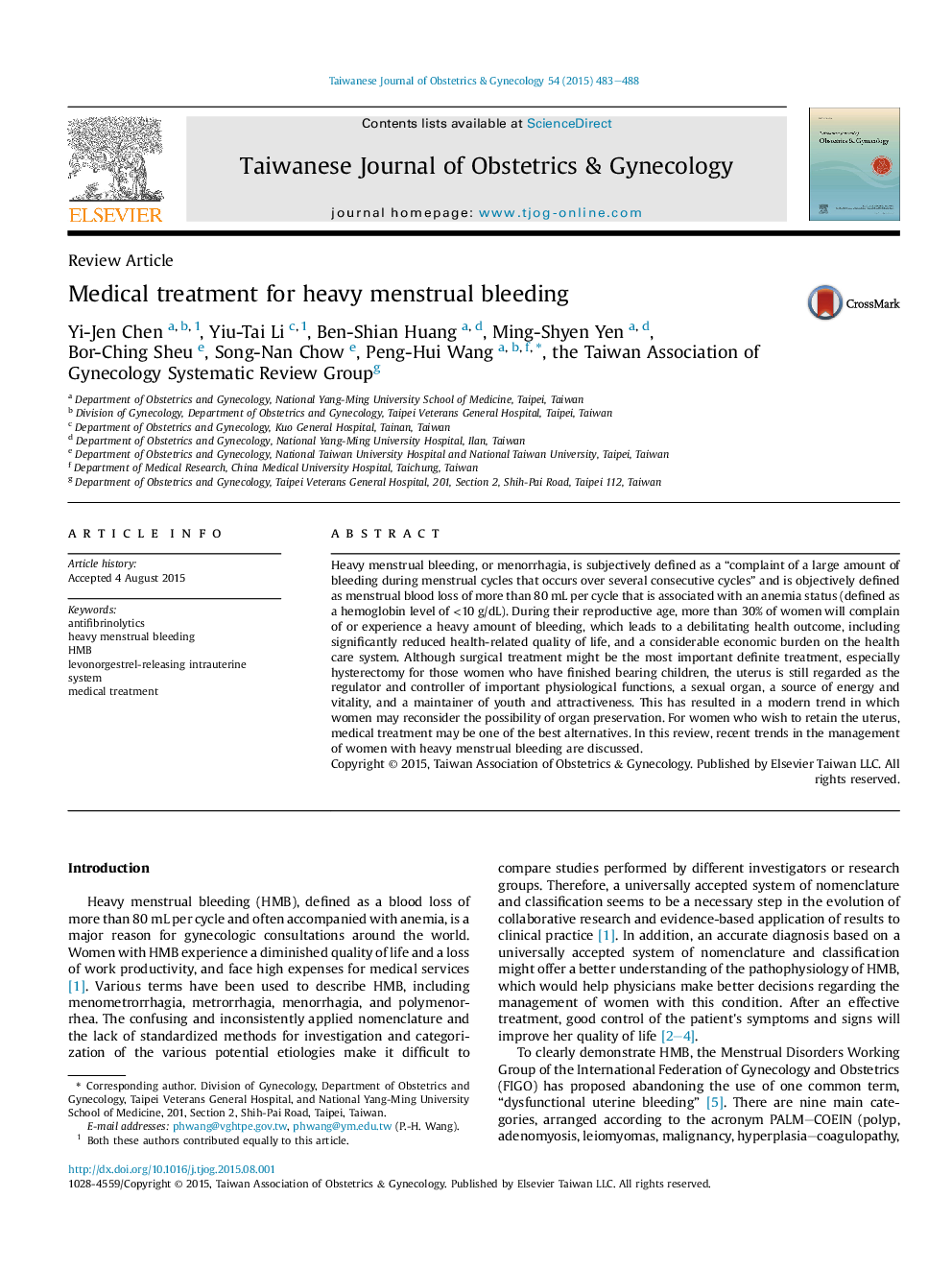| Article ID | Journal | Published Year | Pages | File Type |
|---|---|---|---|---|
| 3975464 | Taiwanese Journal of Obstetrics and Gynecology | 2015 | 6 Pages |
Heavy menstrual bleeding, or menorrhagia, is subjectively defined as a “complaint of a large amount of bleeding during menstrual cycles that occurs over several consecutive cycles” and is objectively defined as menstrual blood loss of more than 80 mL per cycle that is associated with an anemia status (defined as a hemoglobin level of <10 g/dL). During their reproductive age, more than 30% of women will complain of or experience a heavy amount of bleeding, which leads to a debilitating health outcome, including significantly reduced health-related quality of life, and a considerable economic burden on the health care system. Although surgical treatment might be the most important definite treatment, especially hysterectomy for those women who have finished bearing children, the uterus is still regarded as the regulator and controller of important physiological functions, a sexual organ, a source of energy and vitality, and a maintainer of youth and attractiveness. This has resulted in a modern trend in which women may reconsider the possibility of organ preservation. For women who wish to retain the uterus, medical treatment may be one of the best alternatives. In this review, recent trends in the management of women with heavy menstrual bleeding are discussed.
